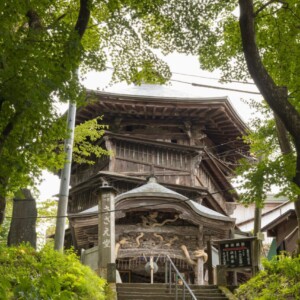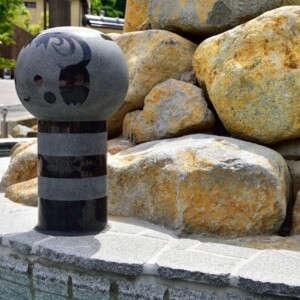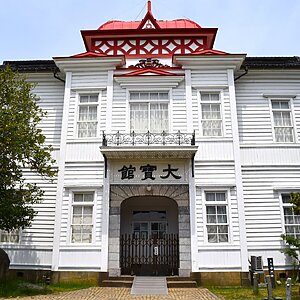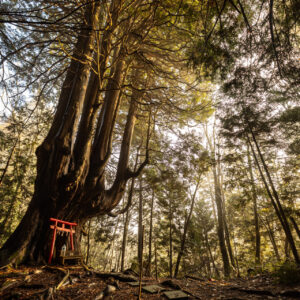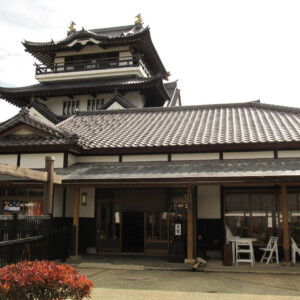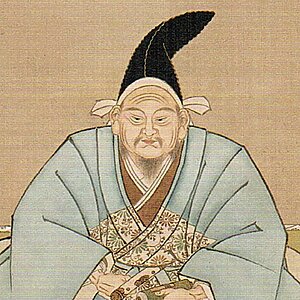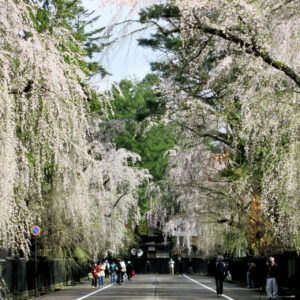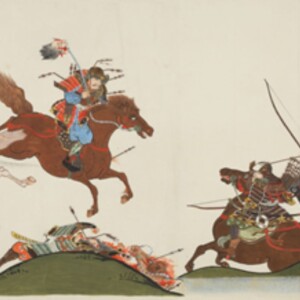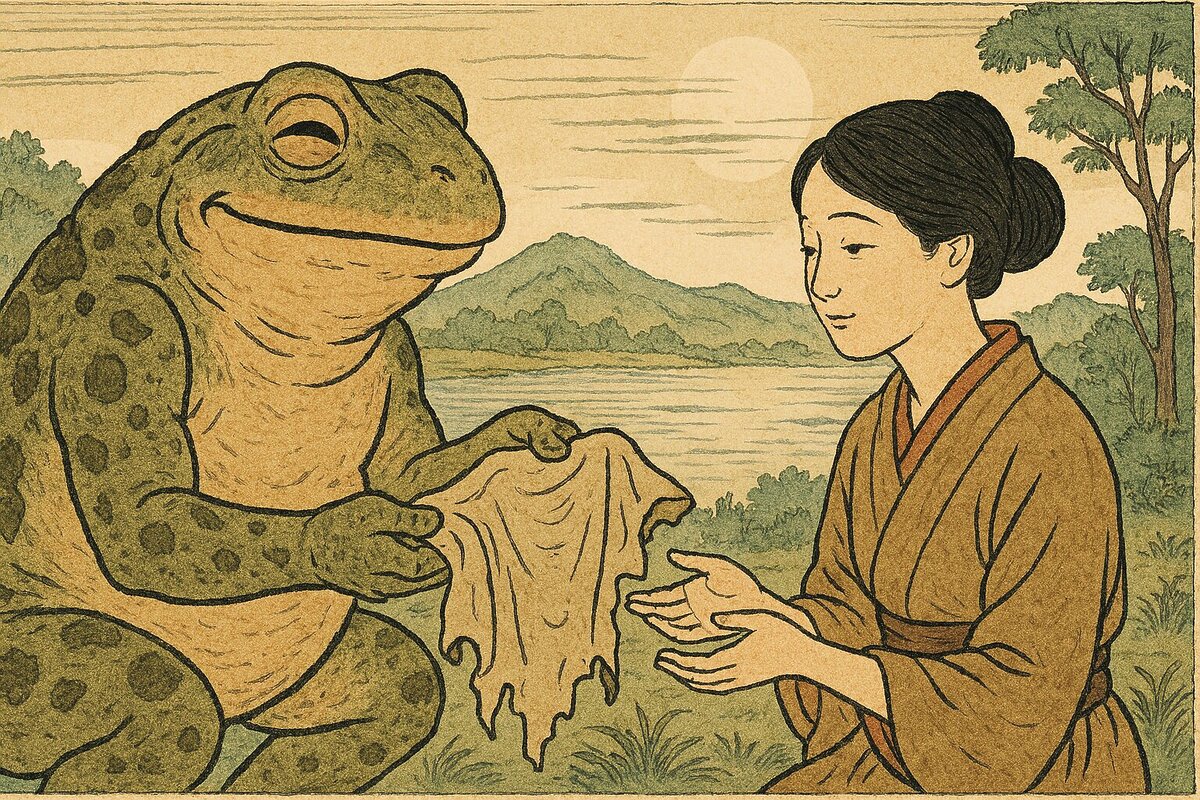
What is Ubaki? A detailed introduction to the Yamagata folktale that was also broadcast in Manga Nippon Mukashibanashi
table of contents
Did you know that Yamagata has many folk tales, some of which are famous and have even been broadcast on Manga Nippon Mukashi Banashi?
In this article, we will introduce one of these, "Ubakawa."
What is the story of Ubagawara in Yamagata
"Ubakawa" was originally recorded as one of the Muromachi period tales, and although the story content varies slightly, it is a folk tale that has been handed down throughout Japan
The story of "Ubakawa," which was introduced to Yamagata and aired on Manga Nippon Mukashi Banashi on January 26, 1991, is as follows
The youngest of three sisters is about to be forced to marry a man who is the incarnation of a giant snake to help the villagers who are suffering from a drought. After killing the snake with a thousand gourds and needles, she is saved by a giant toad disguised as an old woman and is given an Ubakawa, a scarecrow that allows her to transform into the form of an old woman when worn to escape the disaster
At the recommendation of Ogama, the young woman begins working at the wealthy man's mansion, and when she takes off her old clothes, the young master falls in love with her, and the two eventually become husband and wife
Characteristics of "Ubakawa" in Yamagata
We will introduce three characteristics of "Ubakawa," a traditional craft from Yamagata
Similar to the Snake Marriage/Water Begging type
Like "Ubakawa," another folk tale that is widely handed down throughout the country is the story of "Snake Marriage."
Snake bride stories can be roughly divided into two types: the "Odamaki" type, in which a man follows a thread into the mountains, and the "Water-begging" type, in which a rice field that has dried up due to drought is filled with water. Ubakawa is said to be similar to the "Water-begging" type
The story of the snake bride/water beggar type is as follows
Once upon a time, a man with three daughters had a drought that caused the water in his rice field to dry up. In his dilemma, he said to himself that if someone could help him water the rice field, he would give one of his daughters as a bride
The next day, the rice field was filled with water, and a young samurai appeared and declared that he was the incarnation of a giant mountain snake, but that he would take the girl as promised
The youngest daughter says she is going to get married, and arrives at the lake where the giant snake lives with her dowry of 100 gourds and many needles.However, she tells the snake to sink the gourds, and when it gets tired and unable to sink them, she scatters the needles around it and escapes danger
When the daughter returns home, she is known for being filial and wise, and she marries into a good family and lives happily ever after
The story of the snake bride and the water beggar can be said to be a cut-out of the first half of the Yamagata tale of Ubakawa
Furthermore, because a non-human being is about to be forced to marry a human, the Snake Bridegroom/Water Begging type and the first half of the Ubakawa story can be classified as the same tale of interspecies marriage (iruikon intan)
Reference: Maekawa Yoshiyuki, "Transformation of the Heart as Seen in the Folktale 'The Snake Bride'"
When she wears the Ubakawa, she takes on the appearance of an old woman
In the tales of Ubakawa passed down in Yamagata, it is said that when you wear Ubakawa, you will take on the appearance of an old woman, but in stories passed down in Kunohe County, Iwate Prefecture, the person will turn into a stone, and in stories passed down in Tono City, they will turn into other things, such as a frog
What they have in common is that they become less noticeable to others and are less likely to be targeted for assassination
Reference: Rie Arakawa, "About the Yamauba's Skin: Taking Off and Putting On"
The benefits of wearing a turban are not clearly depicted
The tales of Ubakawa that are passed down in Yamagata do not clearly describe what benefits a girl gained from wearing Ubakawa
For example, in the story of Ubagawara, which is passed down in Niigata Prefecture, there is a benefit to girls who wear Ubagawara, as it protects them from being caught by demons
The benefit of shedding your old man's skin is that it will attract the attention of a young master, so it may seem like a stark contrast to wearing it
summary
The story of Ubakawa is a folk tale that has been passed down all over Japan, although the content of each story varies slightly.We learned that the story told in Yamagata is similar to the Snake Bridegroom and Water Begging versions, that when you wear Ubakawa, you turn into an old woman, and that the benefits of wearing Ubakawa are not clearly stated
If you are interested, please try comparing the reading of Ubaki from Yamagata and other regions


![[Miyagi and Fukushima Edition] Valuable ancient martial arts from the six Tohoku prefectures! What are the unique techniques still handed down today? Old-style martial arts (Miyagi and Fukushima edition)](https://jp.neft.asia/wp-content/uploads/2025/10/koryu01-150x150.jpg)
![[Aomori and Iwate Edition] Valuable ancient martial arts from the six Tohoku prefectures! What are the unique techniques still handed down today? Old-style martial arts (Aomori and Iwate)](https://jp.neft.asia/wp-content/uploads/2025/10/koryu02-150x150.jpg)
![Tono's Yokai Spot "Kappa Pond" - Can you get a kappa fishing permit and go kappa fishing? [Tono City, Iwate Prefecture] Kappa Falls (Tono City, Iwate Prefecture)](https://jp.neft.asia/wp-content/uploads/2017/06/PXL_20250902_060919014-150x150.jpg)
![A textile born from the charm of nature! Try wearing Yonezawa Tsumugi! [Yamagata Prefecture] Yonezawa Tsumugi](https://jp.neft.asia/wp-content/uploads/2018/02/IMG_7990-150x150.jpg)
![Travel back in time to the Edo period at Ouchijuku! [Fukushima Prefecture] Panoramic view of Ouchijuku](https://jp.neft.asia/wp-content/uploads/2018/03/IMG_89061-150x150.jpg)
![[Hirosaki City, Aomori Prefecture] If you want to experience the traditions of Hirosaki, head to Tsugaru Domain Neputa Village! IMG_0793](https://jp.neft.asia/wp-content/uploads/2018/09/IMG_0793-150x150.jpg)
![What is Yamaichi Soy Sauce's "Akegarashi"? A perfect accompaniment to alcohol and rice [Nagai City, Yamagata Prefecture] New Year image](https://jp.neft.asia/wp-content/uploads/2022/07/akegarashi-150x150.jpg)
![[Mogami District, Yamagata Prefecture] A trip to enjoy the leisure time of adults at Hijiori Onsen, at the foot of the sacred Mt. Gassan Hijiori Onsen](https://jp.neft.asia/wp-content/uploads/2022/07/9ff4d3442293cccfb400e0b4fd0fb775-150x150.jpg)

